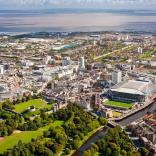If you are living outside of the UK you may need a UK visa to visit Wales. Wales is part of the United Kingdom and the UK-wide visa and immigration system. To find out more visit the UK Government Visas and Immigration website.
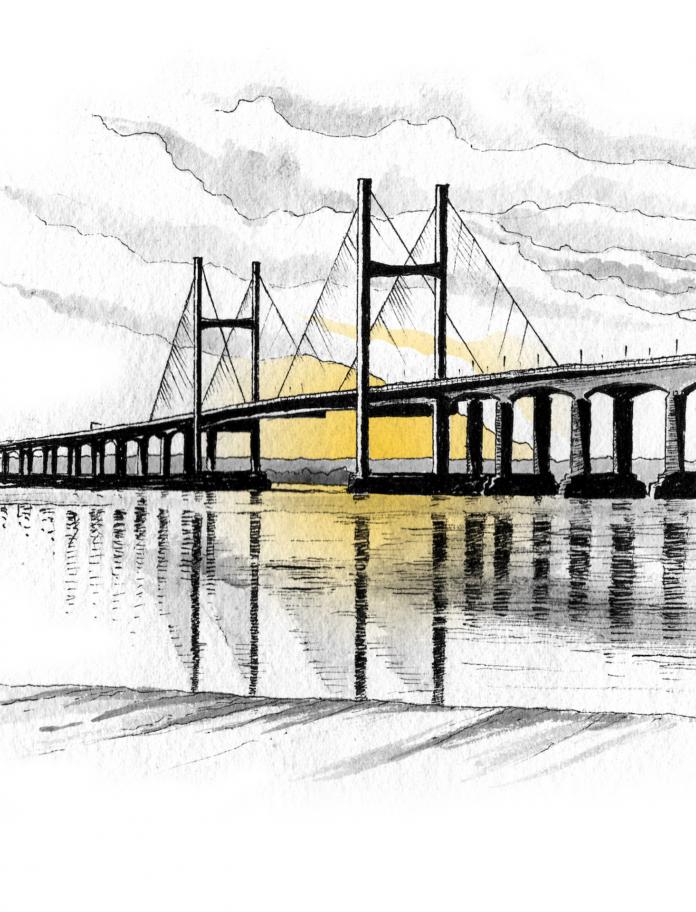
By road
There are three main motorway links between Wales and England. The M4 is the arterial route from London to South Wales, stretching as far as Pont Abraham in Carmarthenshire, West Wales. As you enter Wales, you’ll pass over one of the two spectacular Severn Bridges. Tolls have been abolished, with effect from the end of 2018.
The M50 connects Monmouthshire and Mid Wales with the M5 north-south route, for access to the Midlands, the West Country and beyond. The M6 and M56 provide the quickest way to North Wales from Manchester and the North of England, linking up to the A55 that stretches across North Wales.
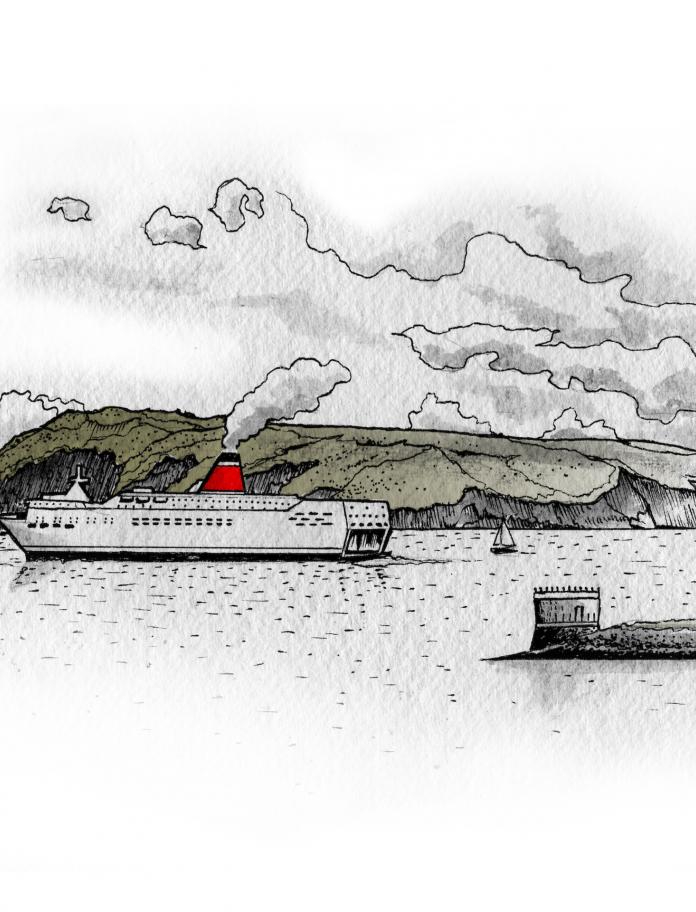
By sea
Ferry services operate between the west coast of Wales and the Republic of Ireland (Fishguard or Pembroke to Rosslare, and Holyhead to Dublin). The frequency of the services means it’s easy to combine a stay in Wales with a quick jaunt over to Ireland, and the quickest ferries make the crossing in just two hours.
Wales has six ports that accept cruise ships, offering a range of services and facilities: Newport, Cardiff and Swansea in the Bristol Channel; Fishguard and Milford Haven in West Wales; and Holyhead on Anglesey.
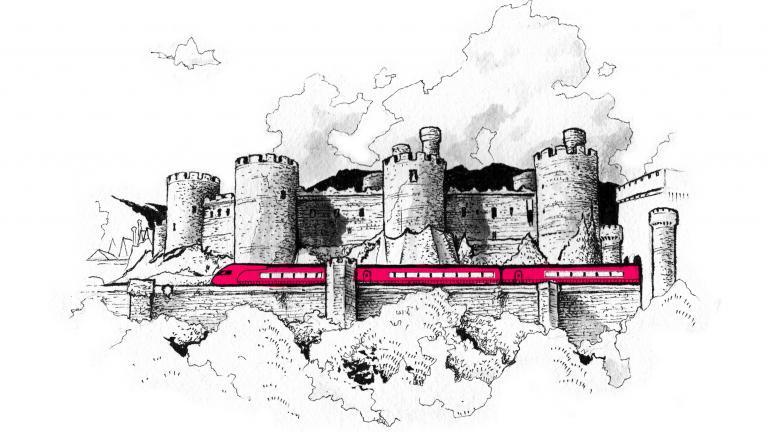
By rail
The South Wales Main Line connects London to Newport, Cardiff, Swansea and other destinations in South and West Wales. When works to electrify part of the line are complete, the journey time between London Paddington and Cardiff will be cut from just over two hours to around an hour and 45 minutes.
For those travelling to Wales from overseas, Paddington is a short hop by London Underground from St Pancras International Station, where Eurostar services from Paris, Brussels and other destinations in mainland Europe terminate. Passengers arriving in the UK from Heathrow, Gatwick, Stansted, Luton or London City Airports can travel by rail to other London terminals, and transfer to Paddington by Underground to board a train to South Wales.
Cardiff Central is Wales’ busiest station. As well as the London service, it has regular trains from destinations including Bristol, Birmingham, Portsmouth, Southampton, Manchester and Shrewsbury. It’s also the hub of a regional network that serves the South Wales Valleys. Since October 2018, train services within Wales and around the Welsh Borders have been operated by Transport for Wales.
Other parts of Wales can be reached from England via their own routes. There are direct trains from London Euston and Manchester to Llandudno, Bangor and Holyhead; and from Birmingham, Shrewsbury and Crewe to the North Wales coast and the Llŷn Peninsula.
National Rail Enquiries is a source of information for all passenger rail services in the UK.
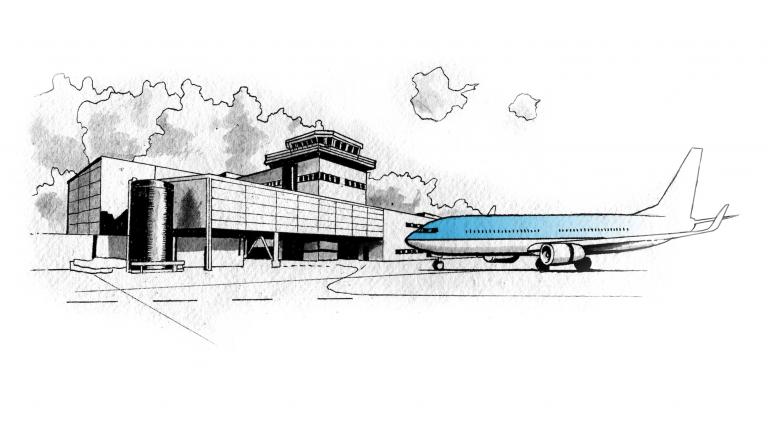
By air
Cardiff Airport is located just outside our capital, and there are regular bus and rail links to the city centre and other parts of South Wales. Around 80 minutes in the air takes you to European hubs such as Amsterdam and Paris, and there are frequent domestic services to destinations including Newcastle, Edinburgh, Glasgow, Aberdeen and Belfast.
Since May 2018, a daily Qatar Airways flight operates between Cardiff and Doha. It provides a Welsh connection to more than 150 destinations across six continents, including key routes to and from Australia, Japan, Thailand, India, South Africa, Hong Kong and China.
Although Cardiff is by far the largest airport within Wales, the country is easily accessible from nearby airports in England. Liverpool John Lennon Airport and Manchester Airport are both well placed for North Wales (Liverpool is only around 60km or 40 miles from Wrexham).
Birmingham Airport is around one-and-a-half hours from Welshpool or Monmouth, for Mid Wales and South East Wales respectively. Bristol Airport is around 90 minutes away from Cardiff by road, and served by direct coach services from Cardiff. London Heathrow Airport is within easy reach of the M4 motorway and fast railway services to South Wales via Paddington or Reading.
Related links:
- Visit Wales: Search for places to stay, things to do, and things to see in Wales
- The Wales Way: Explore three touring routes through the heart of Wales
- Transport for Wales: Train travel in Wales
-
Traveline Cymru: Public transport journey planning


